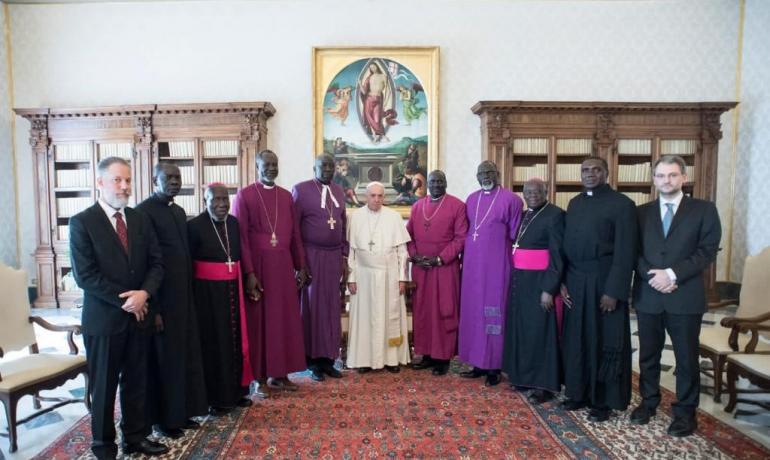Celebrating Cultural Diversity - a reflection from OA Ferdinand von Habsburg-Lothringen

“At a time of enormous global, social and political change, when we seek meaning in our own actions, and as we ask what kind of future we, our children and their children may seek, I have sought to draw on my time at Ampleforth, trying to centre prayer, compassion, patience and reflection in my daily life.
Twenty-one years of accompanying local and national peace processes in Sudan and South Sudan from civil war to relative peace, independence and back to civil war, much of it journeying with the Church to mediate and facilitate between warring and conflicting parties and communities, have illustrated the damage international aid potentially causes, questioned Western models of support to complex contexts and, above all, built in me an immense respect for those I have worked with, their resilience, knowledge and humility in serving the most needy.
Indeed, it is we who should perhaps humbly seek to learn from our neighbours. Many of our own systems have faced recent political fractures and social fragilities, further exposed by the COVID-19 pandemic. We have begun to appreciate that our suffering is common notwithstanding our apparent global differences and that, unsurprisingly, we are not immune to our greatest fears of racism, polarization, violent extremism, much of it home-grown.
With the powerful blessing and support of His Holiness Pope Francis, Most Reverend and Right Honourable Archbishop Welby of Canterbury and the Moderator of the General Assembly of the Church of Scotland, the South Sudan Council of Churches, which I accompanied and advised over 5 years, illustrated that ecumenism is not only alive and well, but can serve as the very glue to a fractured nation and the balm to a wounded society.
As United Nations Peace and Development Advisor within the turbulent political transition in Maldives – a ‘100% Muslim’ nation – I learned to respect that my own narrow confines and views, while perhaps inherently reassuring, fail to answer my deepest questions on the interphase of different faiths, the collective, common search for God, the journey to finding one another, allowing the sunlight of open dialogue to help expose doubts, and seek truth and find hope in one another’s vulnerabilities.
Currently, in the Kingdom of Eswatini, challenging questions on the interconnectivity of development and peace, social cohesion and human rights within national strategies are all critical aspects of the work that I and the UN are supporting the government and people to reflect on.
I believe that our actions have value when rooted in prayers and reflection. They give meaning to all our lives, leaving others to appreciate that the legacies we leave behind are not necessarily measured in wealth and power, but rather in the seeds sown through service, compassion and love.”
Ferdinand von Habsburg-Lothringen (E82) is currently serving as Senior Policy Advisor at the United Nations Resident Coordinator’s Office in the Kingdom of Eswatini (former Swaziland). He has worked 4 years in the Southern African tourism sector, served the Church for a decade, the United Nations for 16 years, and the Swiss government for 5 years. He holds a BA Hon. in Archaeology from Durham University and a Masters in International Humanitarian Action from Fordham University. He has four children and speaks four languages.
Photo courtesy of the Vatican, Ferdinand is on the left.